These days, more and more of us are turning "back to the Earth" and have started (or resumed) growing our own food.
Although I grew up in a relatively well-off upper-middle class neighborhood in Denmark, I was still raised with the idea of growing our own food as a perfectly natural part of life. Back then (1960s-70s), we weren't doing so because there was some kind of external threat but because homegrown simply tasted better and was much fresher than what you could get at the stores.
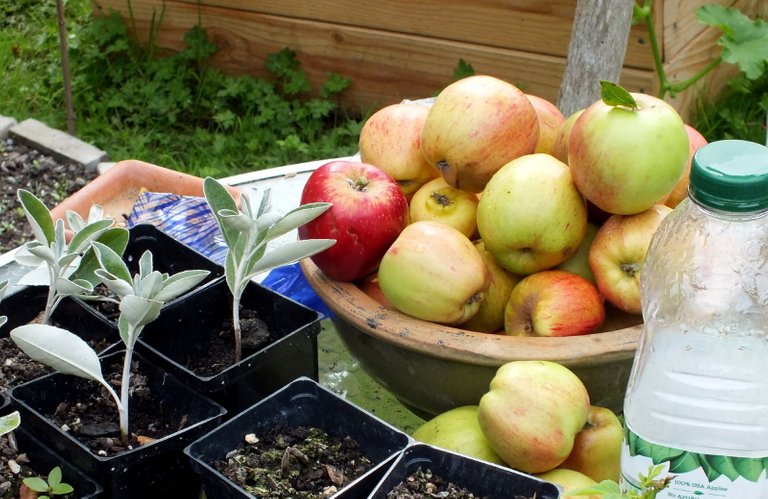
Late summer, 2020
With the current renaissance in Homesteading here in the USA, we pay a lot of attention to the "Where to grow, How to grow and What to grow" of the equation. There are also 100's of excellent resources on how to can, freeze, dry and preserve your bounty, once harvest time comes along.
One of the things that often gets overlooked is "what comes AFTER."
What I mean by that is that now we've put all this effort into filling our pantry shelves and freezers, but it doesn't end there: It's equally important to manage our stocks! Let's face it, it would be a huge shame and potentially very frustrating to have done all this work... only to realize that things have "gone bad" and we have to put it all back into the compost pile.
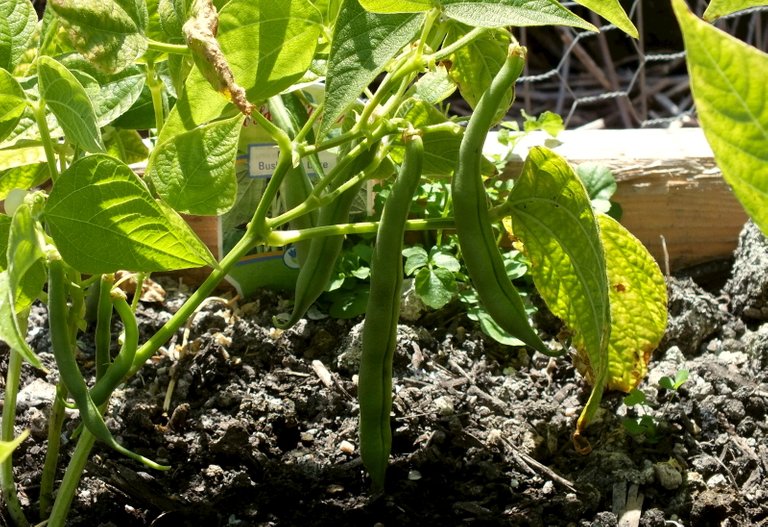
Summer, 2020
When I was a kid, I distinctly remember my mom "taking inventory" about every two months or so... I remember, because I would be her helper.
Not only did it give us a snapshot of what we had, but knowing what we had allowed her to meal plan around what there was plenty of... and make note of what was (always?) running out. As a result, we very rarely ended up having to discard "food gone bad."
But there's more to it than that!
In time, we also get a grip on any gaps between "what's fun and easy to GROW" and "What we actually USE." And that's an important consideration, in terms of planning for subsequent years' garden.
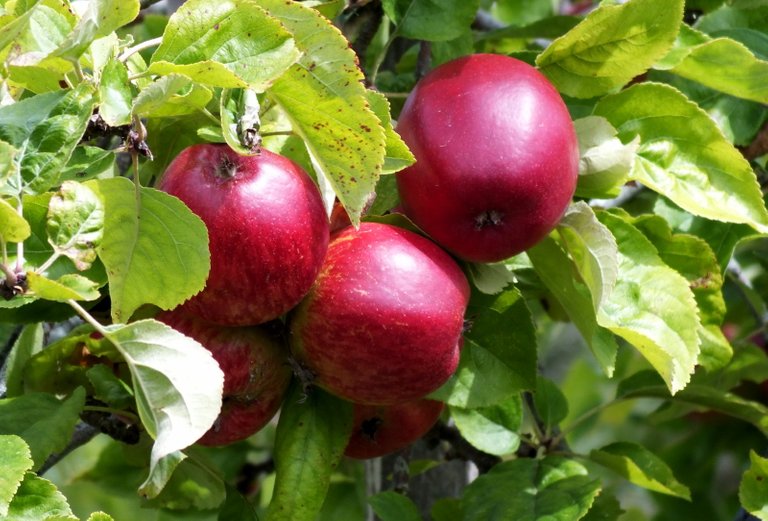
Late summer, 2020
It might have been awesomely rewarding and fun that you created 200 jars of pickles, but will you actually eat or trade or give away 200 jars of pickles?
In my childhood home — as well as in our current household — one of the things we've learned that anything with fruit (strawberries, apples, apricots, blackberries) always gets used and is in short supply by February while many veggies are slower to be used up. Pound-for-pound, it takes a lot more apples to make a single apple pie than it takes beans as the vegetable dish for dinner.
Something else we have gradually learned about our current gardening endeavors is that we have our personal idiosyncracies: for example, we eat loads of squash when it's fresh from the garden, but not so much when it comes from the freezer. On the other hand, when it comes to green beans we eat just as many from the freezer as from the garden, if not more.
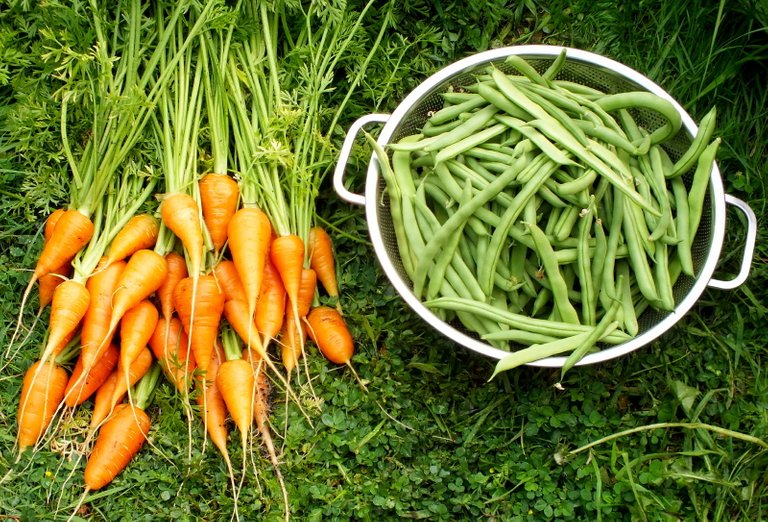
Summer 2020
Regardless of what your situation might be like, the primary message here is to not forget that just because your garden is "harvested and on the shelf" doesn't mean that we can just "forget about it all."
One of the other things we often consider is that some harvests are "cyclical." The apricot tree at the side of our driveway only offers a plentiful harvest once every 4-5 years (last time was in 2019), so we tend to turn most of the fruit into jams and jellies, which will also store for several years.
Yes, several years. Back when I would often live at my auntie's house when my parents traveled extensively, we would routinely be eating plum and Rhubarb jam that was up to 3-4 years old, and it tasted fine. In some cases, it was almost like a good wine... the jams got better with age.
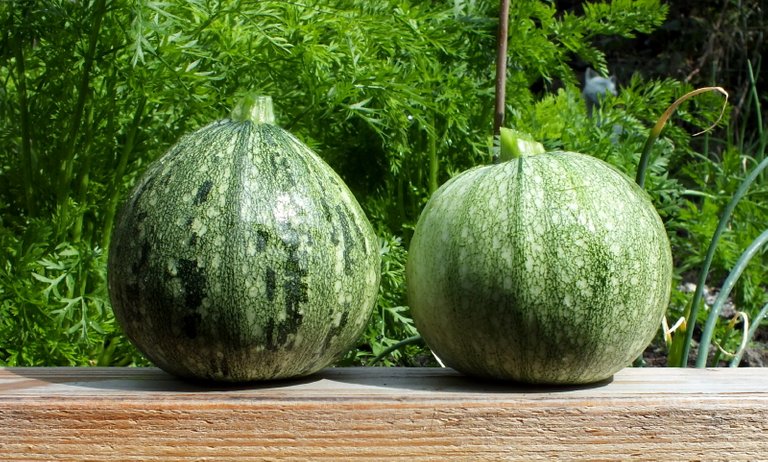
Summer 2020
Now, some who read this might live in a part of the world that has a year-round growing season, so these words may not mean much to you. And if you're a seasoned homesteader, you know all this... but it's still a worthy reminder, because even though I have been actively "at this" since I was a small kid (50+ years!) we still sometimes come across "relics of unknown origin" on our shelves... that turn out to have once been "that failed pickled tomato experiment from 2011."
Thanks for reading, and Happy Growing to you!
How about YOU? Do you take inventory and "front" your stored food from your garden? Do you know what's in your freezer, including at the back/bottom? Do you have a "system," or do you just go by feel? Comments, feedback and other interaction is invited and welcomed! Because — after all — SOCIAL content is about interacting, right? Leave a comment — share your experiences — be part of the conversation!

Greetings bloggers and social content creators! This article was created via PeakD, a blogging application that's part of the Hive Social Content Experience. If you're a blogger, writer, poet, artist, vlogger, musician or other creative content wizard, come join us! Hive is a little "different" because it's not run by a "company;" it operates via the consensus of its users and your content can't be banned, censored, taken down or demonetized. And that COUNTS for something, in these uncertain times! So if you're ready for the next generation of social content where YOU retain ownership and control, come by and learn about Hive and make an account!


(As usual, all text and images by the author, unless otherwise credited. This is original content, created expressly and uniquely for this platform — NOT cross posted anywhere else!)
Created at 20210221 15:35 PST
0190/1433
I would inventory all the freezers, the pantry and the root cellar in June to determine what we'd eaten and how much to put away for the next year. I keep a written record of everything I can or freeze or dehydrate. That way I can compare what we used against what I had. This is absolutely essential to prevent doing more work than you need to.
I would also organize, and clean if needed, the freezers during the inventory. I organize the freezers 2 or 3 times during the year, putting to older stuff on top for first use.
Here's a couple posts I did on inventorying:
https://steemit.com/freezermanagement/@goldenoakfarm/keeping-freezers-organized
https://steemit.com/homesteading/@goldenoakfarm/the-annual-freezer-inventory
https://steemit.com/homesteading/@goldenoakfarm/annual-june-inventory-june-21-2019-goldenoakfarm
https://steemit.com/homesteading/@goldenoakfarm/organizing-freezers-december-6-2019-goldenoakfarm
https://peakd.com/homesteading/@goldenoakfarm/inventorying-and-cleaning-freezers-june-11-2020-goldenoakfarm
!ENGAGE 25
ENGAGEtokens.I've featured this post in the Lotus Garden newsletter, which will be published tomorrow.
You've been curated by @minismallholding for Natural Medicine's homesteading newsletter, supporting gardeners, permaculturalists, foragers, environmentalists and other earth centred relationships with the earth.
CommunityIIDiscord